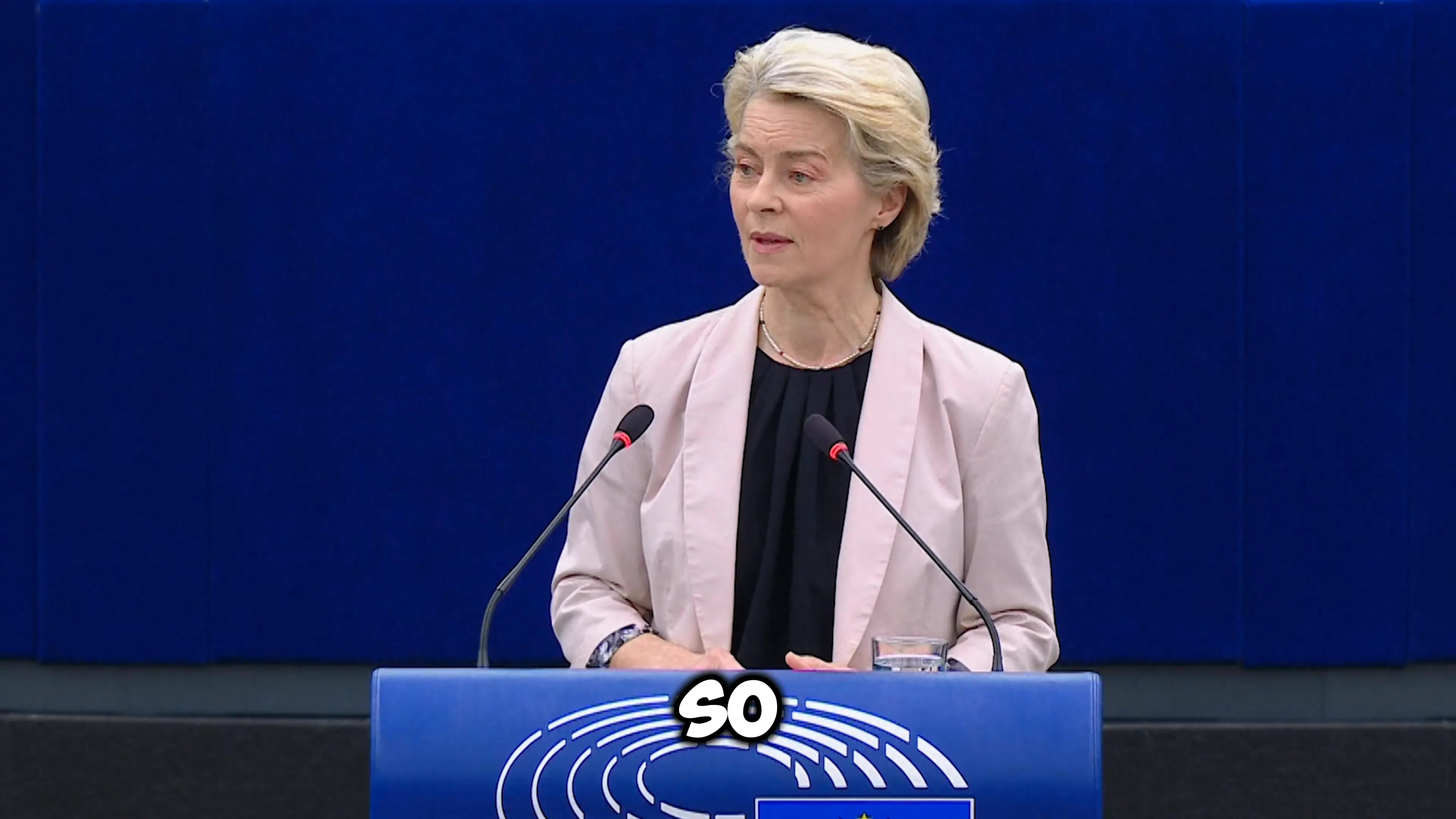In a heated debate, Ursula von der Leyen, President of the European Commission, faced strong accusations from various Members of the European Parliament (MEPs) regarding her leadership and the European Green Deal. The discussions highlighted deep divisions over climate policies, immigration, and the overall direction of the European Union.
Opening Statements
In the recent debate, Ursula von der Leyen’s leadership was put under intense scrutiny. The accusations ranged from corruption to ineffective governance, with many MEPs expressing their discontent regarding the direction of the European Commission.
Christine Anderson set the tone by characterizing von der Leyen as a “wrecking ball” that has dismantled the strengths of the European people. Her passionate outcry resonated with those who feel that the current administration has strayed far from the ideals of democracy and freedom.
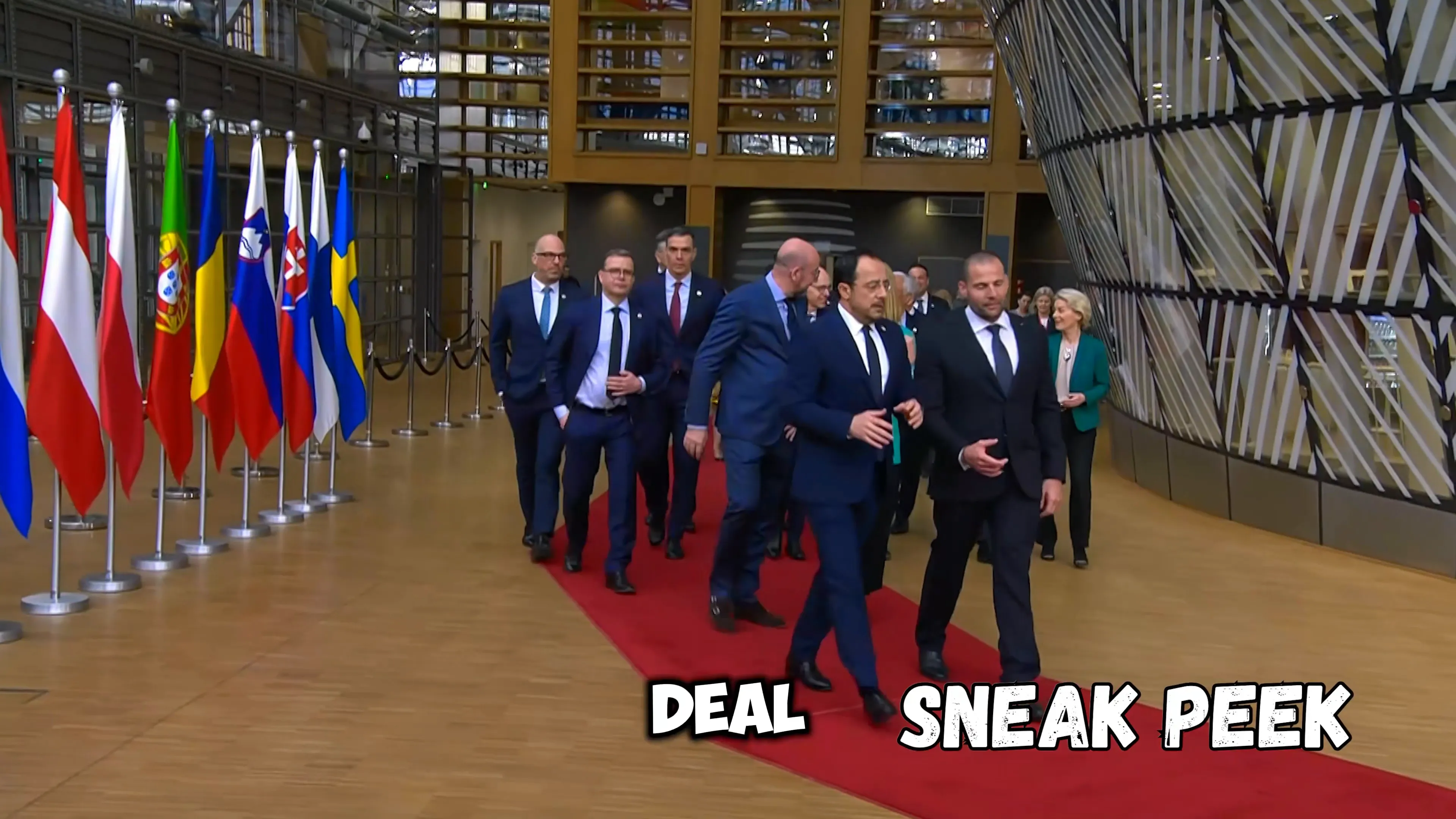
Accusations of Corruption
Accusations of corruption were a focal point of the debate. Christine Anderson boldly declared, “Miss von der Leyen, you are corrupt down to the last fiber,” a statement that many in the audience found striking. This direct confrontation underscored a profound distrust towards the current leadership.
Anderson further emphasized her point by questioning the integrity of the vaccine supply contracts, urging von der Leyen to provide transparency. The implication was clear: without accountability, the Commission’s legitimacy is in jeopardy.
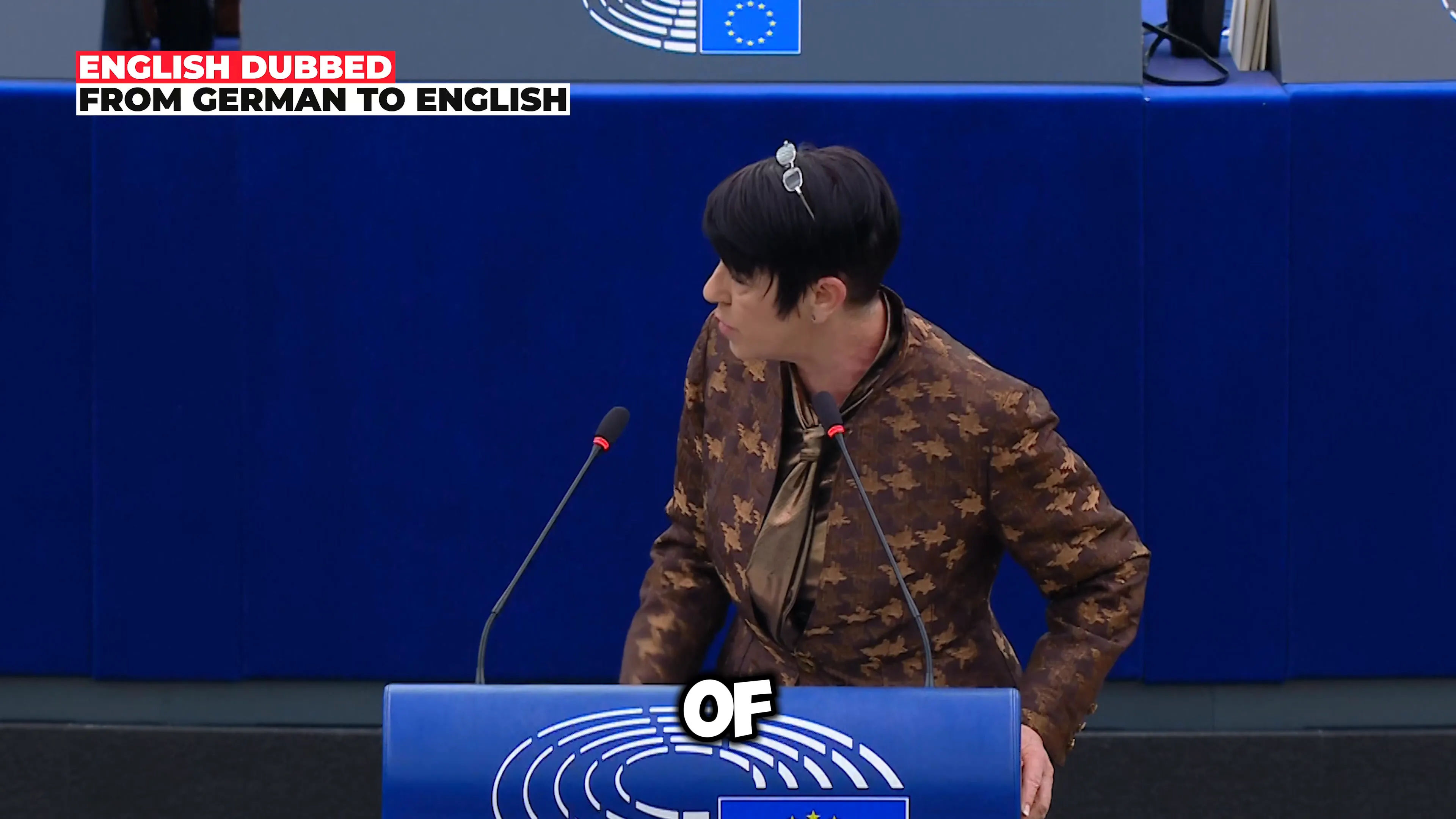
Critique of the European Commission
The European Commission has been criticized for its perceived failure to uphold democratic values. Jorge Buxadé voiced his frustration, stating that the Commission has become “the shield of death” for many Europeans, particularly in Spain. He accused the administration of dishonor and compromise, suggesting that it has failed to protect its citizens effectively.
Moreover, the critique extended to the environmental policies that many MEPs believe are damaging to the economy. Buxadé pointed out that the Commission’s climate fanaticism has had real-world consequences, leading to job losses and economic instability.
Undemocratic Practices Alleged
Ewa Zajączkowska-Hernik raised serious concerns about the democratic integrity of the Commission, calling it “the most undemocratic and unlawful institution in the European Union.” Her assertion that the Commission serves globalists and large corporations rather than the interests of European citizens reflects a growing sentiment among MEPs.
She painted a grim picture of a Europe where ordinary people suffer under high energy prices and restrictive policies. This portrayal of an indifferent bureaucracy is indicative of a broader dissatisfaction with the Commission’s approach to governance.
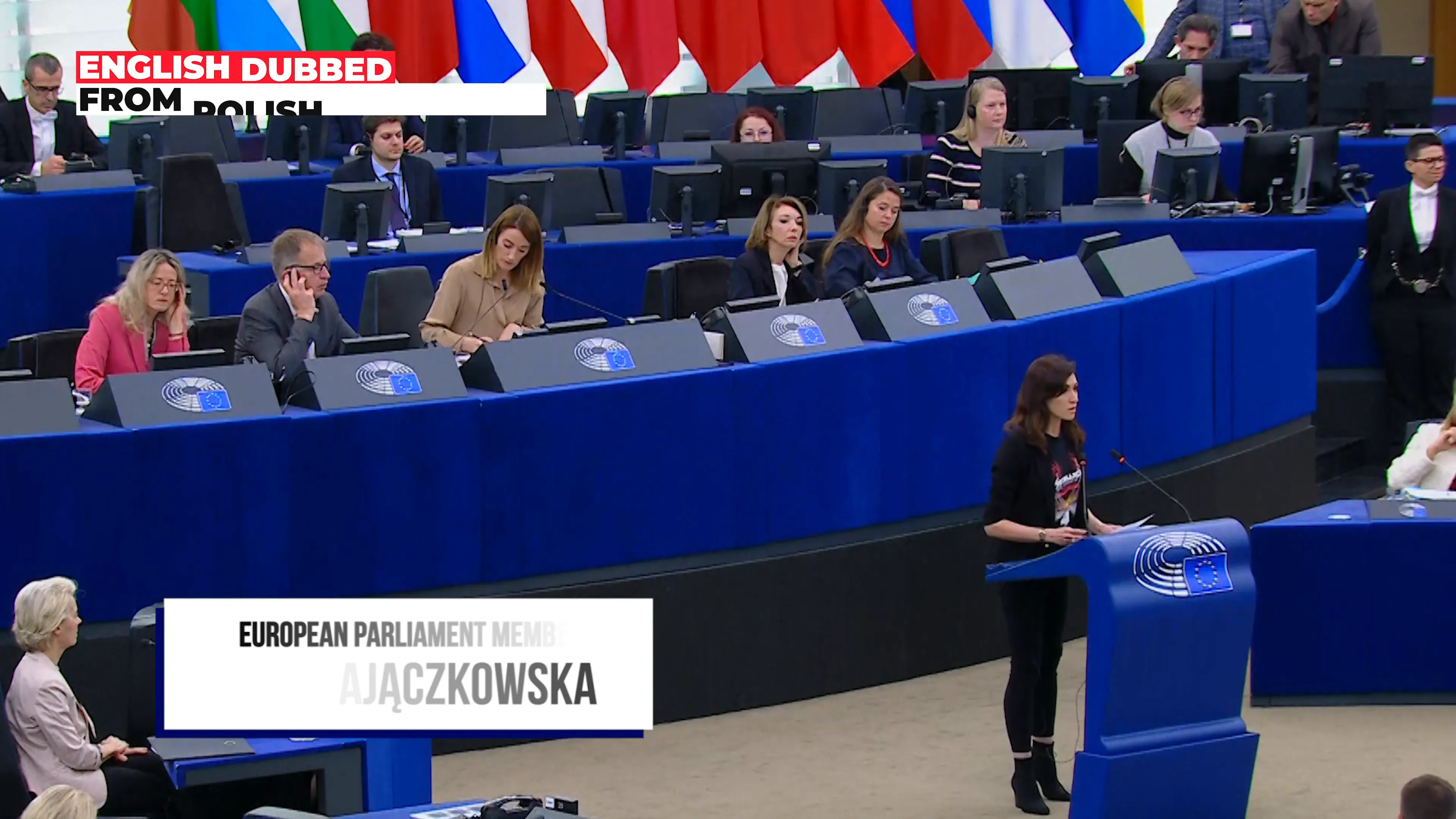
Call for Realistic Climate Policies
As the debate progressed, the need for realistic climate policies became a recurring theme. Charlie Weimers highlighted the disconnect between the Commission’s environmental goals and the economic realities faced by citizens. He urged a shift towards policies that prioritize economic growth while addressing environmental concerns.
Weimers’ call for a more pragmatic approach resonated with those who feel that the current climate agenda is detrimental to the European economy. His emphasis on nuclear power and border security reflects a desire for a balanced strategy that fosters both environmental and economic stability.
Rejection of the Commission
The sentiment of rejection towards the Commission was palpable. Harald Vilimsky articulated a strong stance against von der Leyen’s administration, stating, “We reject this commission,” emphasizing that it stands for mass migration and the deprivation of liberty. His passionate plea for a return to democratic principles struck a chord with many in attendance.
Moreover, the notion that the Commission is a “theater” rather than a legitimate governing body resonated with several MEPs. This idea of political theater undermines the seriousness of governance and raises questions about the efficacy of the Commission in representing European interests.
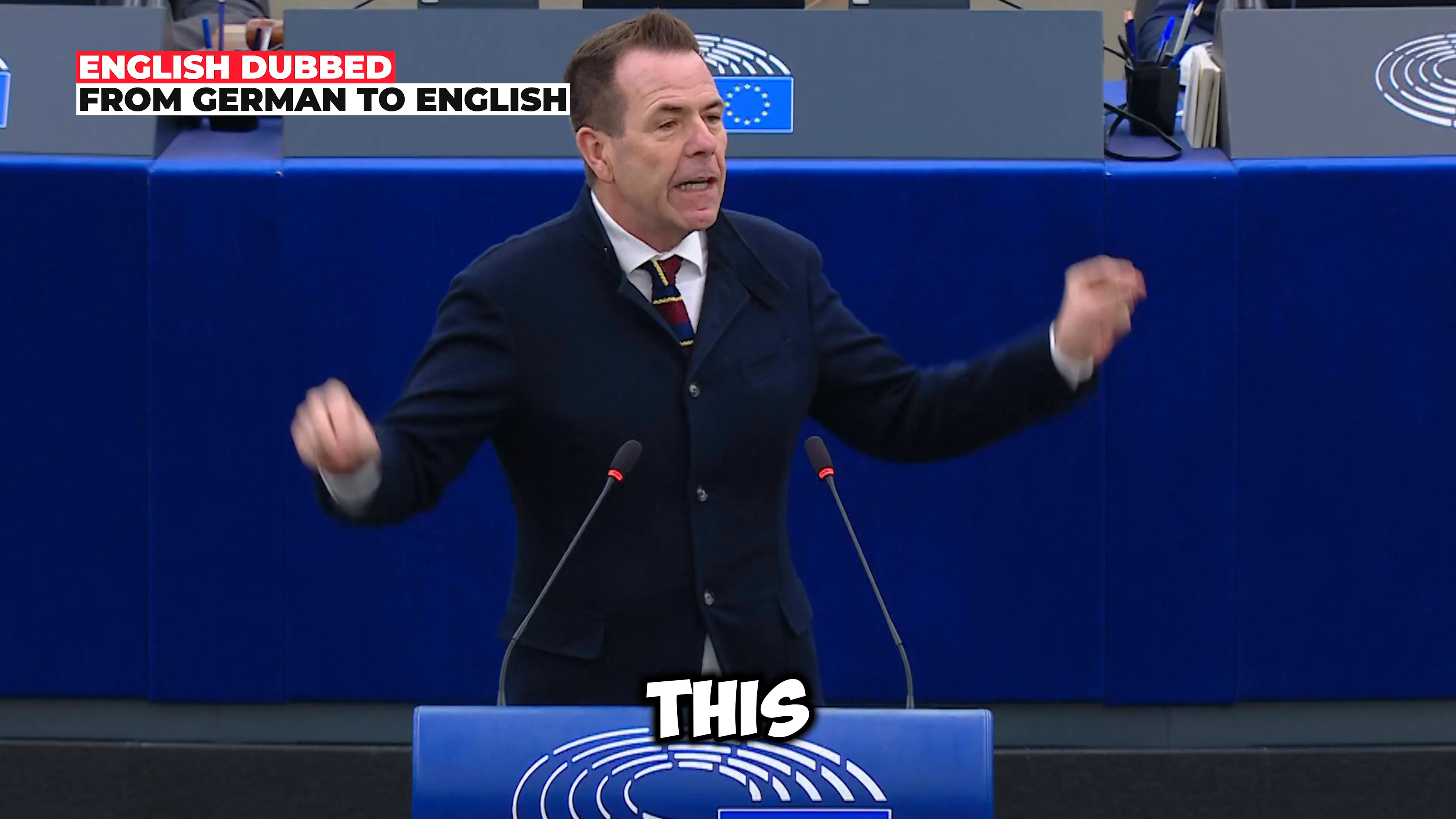
Concerns Over Competitiveness
Concerns over the EU’s competitiveness were voiced with urgency. Adam Bielan highlighted the alarming reality that retail electricity prices in Europe are significantly higher than those in the USA and China. He attributed this to the “insane” Green Deal, which many believe is driving the European economy towards disaster.
Bielan’s assertion that the current policies have made the EU deaf to the citizens’ voice illustrates a disconnect between the Commission’s actions and the needs of the populace. The call for a change in direction is not just a plea for reform but a necessity for the future of Europe.
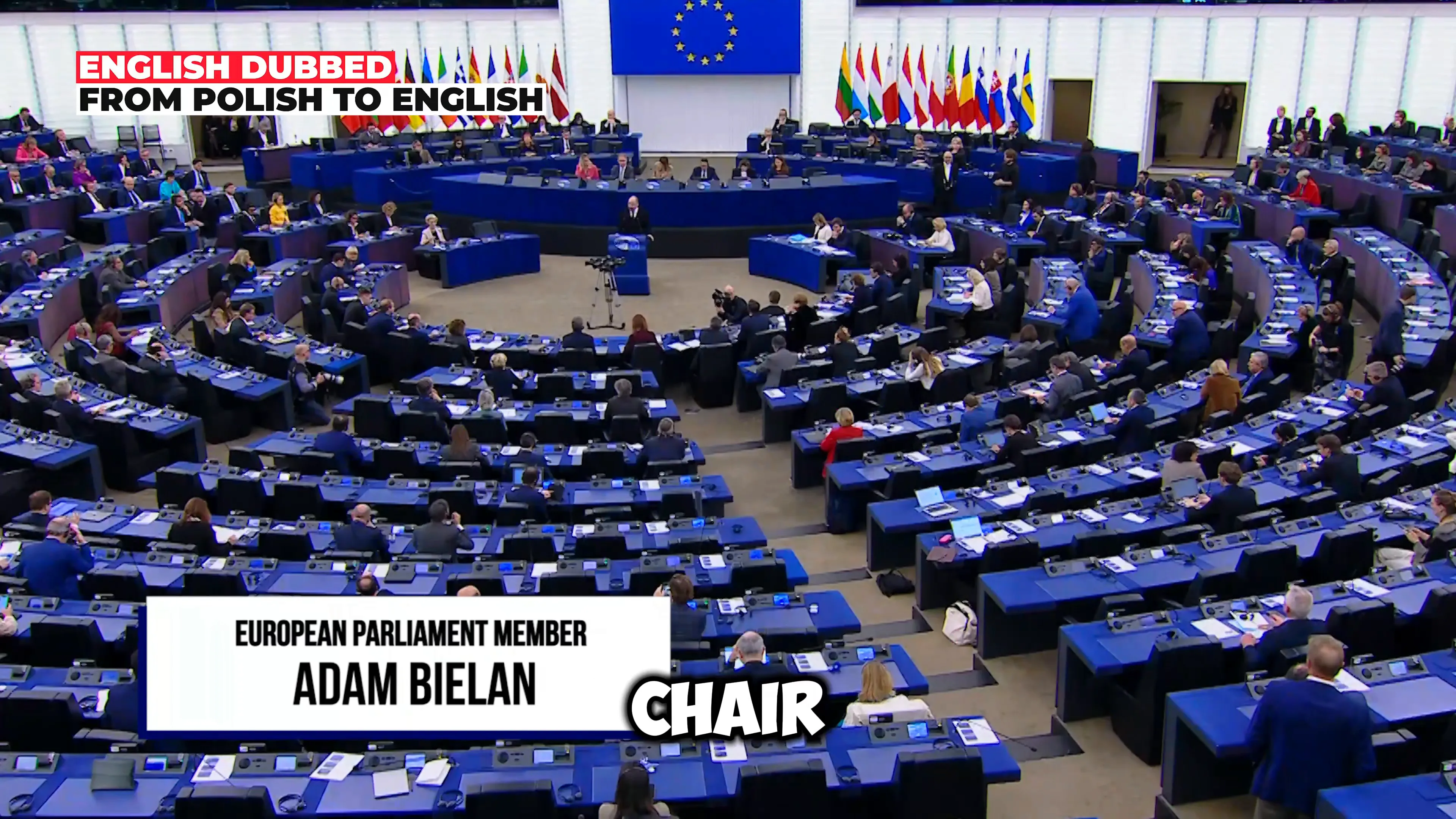
Political Theater in Nominations
The nomination process for the European Commission has been described as a “political theater,” undermining the credibility of the Union. António Corrêa expressed grave concerns about this process, stating that it was meant to exemplify transparency but has instead devolved into a spectacle that erodes citizens’ trust in their institutions.
This criticism underscores a wider sentiment among MEPs who feel that the current administration is more focused on political maneuvering than on genuine meritocracy. The implications of such a process extend beyond mere governance; they threaten the foundational principles of democracy in the EU.
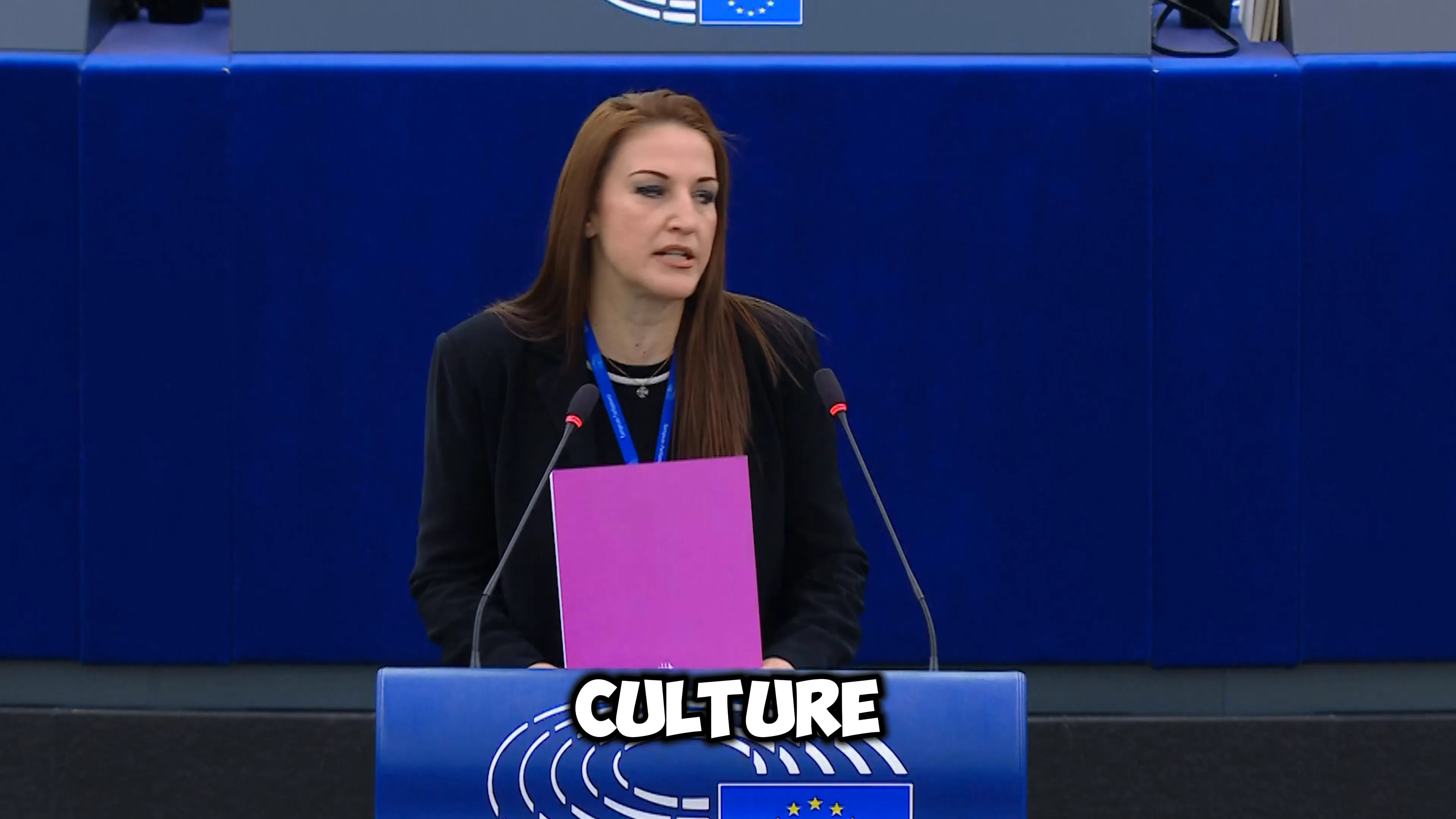
Commitment to Freedom and Democracy
Ursula von der Leyen reaffirmed her commitment to freedom and democracy, emphasizing that these values are the cornerstone of the European Union. She stated, “Fighting for freedom connects us as Europeans,” highlighting the unity that these principles foster among member states.
Her assertion that the Union’s raison d’être is rooted in these values was met with skepticism by many MEPs. The ongoing challenges facing the EU, particularly regarding democratic integrity, raised questions about the sincerity of such commitments.
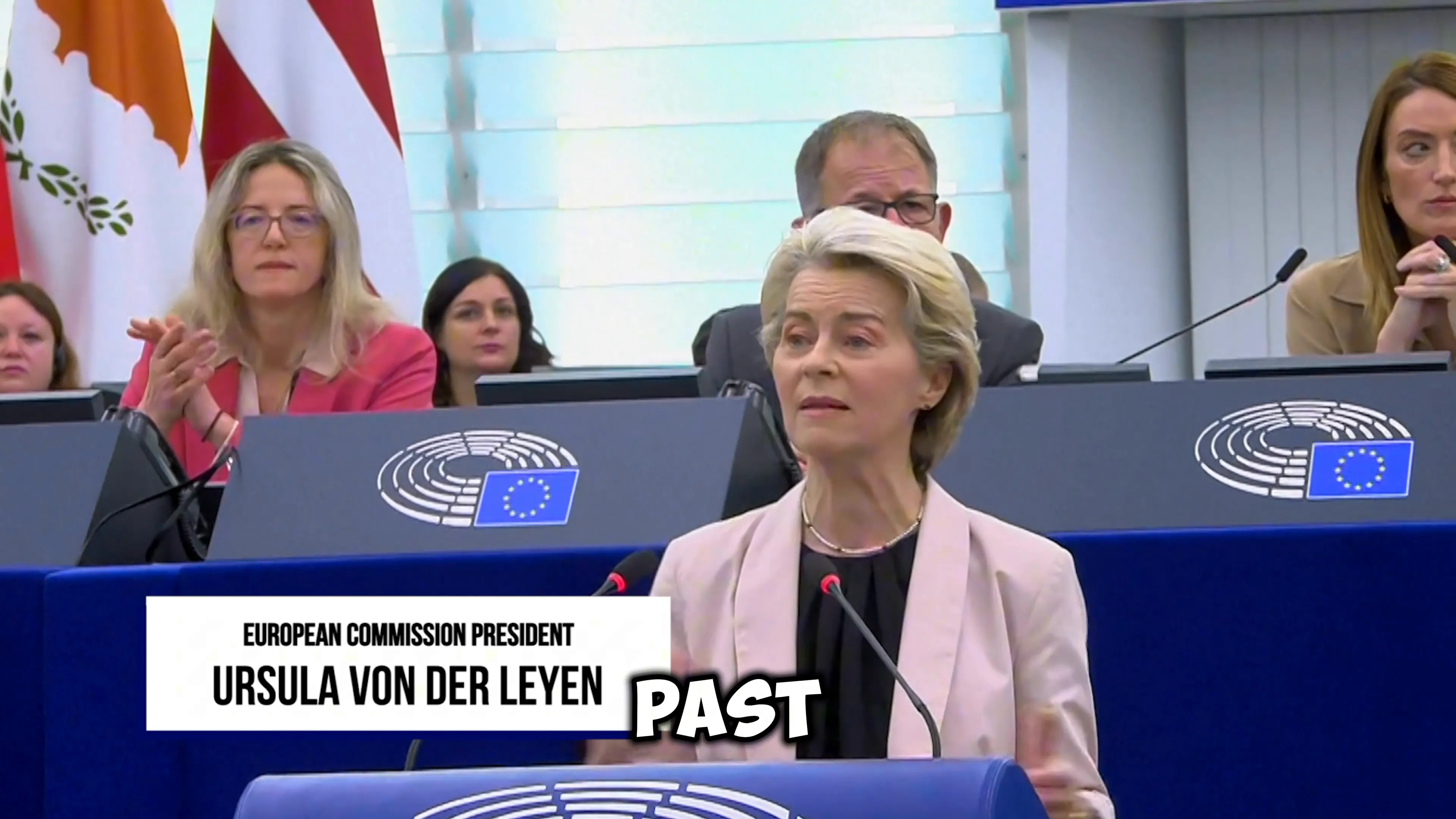
Future Initiatives and Economic Strength
Looking forward, von der Leyen outlined ambitious initiatives aimed at bolstering the EU’s economic strength. She announced the introduction of a “competitiveness compass,” which will guide the Commission’s priorities and actions moving forward. This initiative aims to close the innovation gap with leading economies like the United States and China.
Moreover, she emphasized the need for a joint plan for decarbonization that does not compromise competitiveness. The Clean Industrial Deal, slated for introduction within the first 100 days of her mandate, aims to address both economic and environmental goals, signaling a dual commitment to sustainability and growth.
Defense and Security Concerns
Defense spending and security were prominent themes in the debate. Von der Leyen pointed out the disparity in defense expenditures between Europe and Russia, arguing that Europe must significantly increase its defense spending to ensure security. She stressed the importance of a unified defense market and the need to enhance military mobility across member states.
This call for increased defense investment reflects broader geopolitical realities and the necessity for Europe to position itself as a strong player on the global stage. The urgency of these reforms is underscored by ongoing conflicts in neighboring regions, particularly Ukraine.
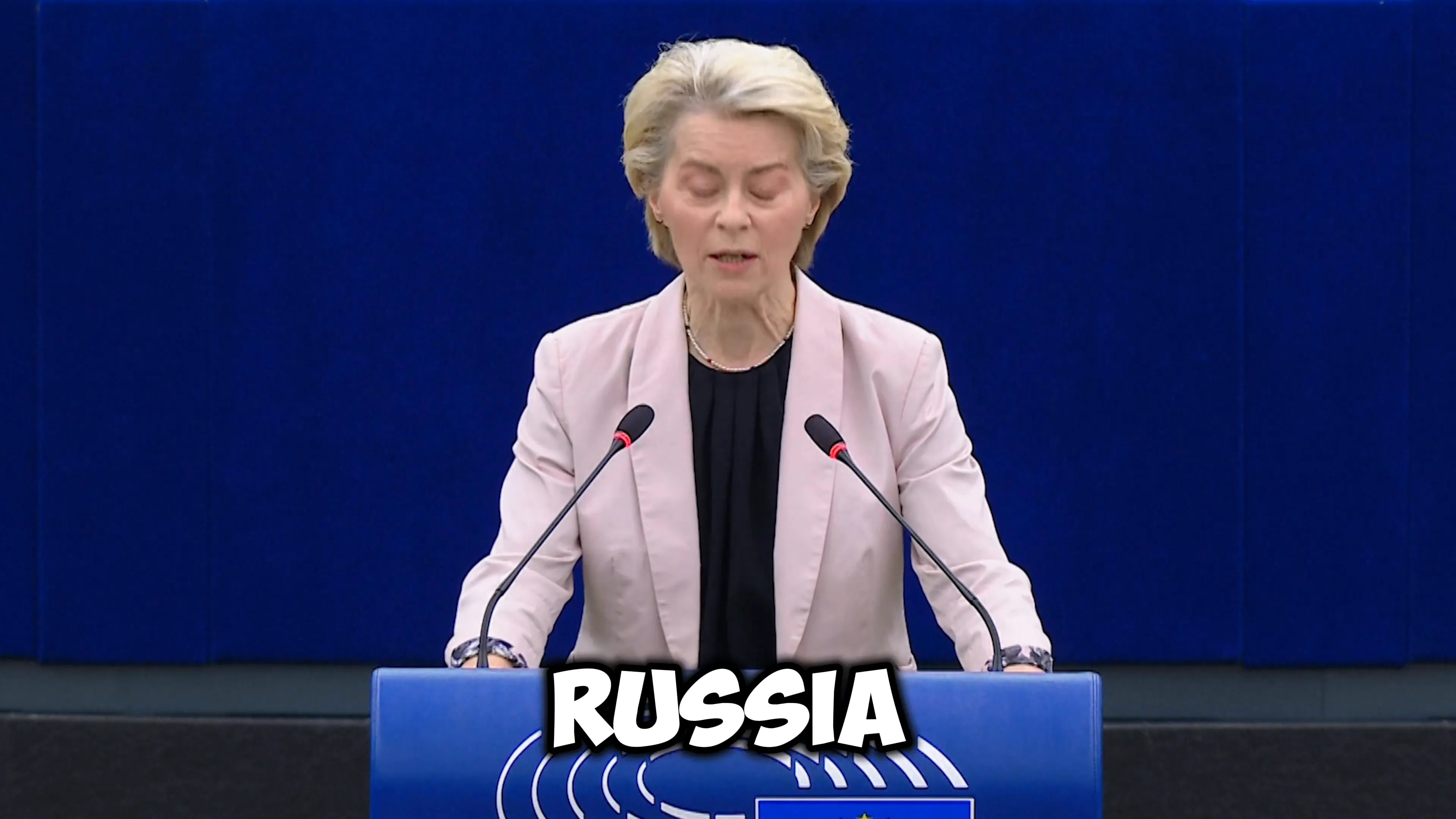
Addressing Housing and Agricultural Issues
Housing emerged as a critical issue during the debate, with von der Leyen acknowledging its prominence in the minds of European citizens. She committed to tackling the housing crisis head-on, recognizing it as a pressing concern for families across the continent.
In addition to housing, the plight of farmers and fishers was highlighted, as they are often the first to feel the impacts of climate change. Von der Leyen pledged to ensure fair income for these workers, emphasizing the need for a level playing field in agricultural policies.
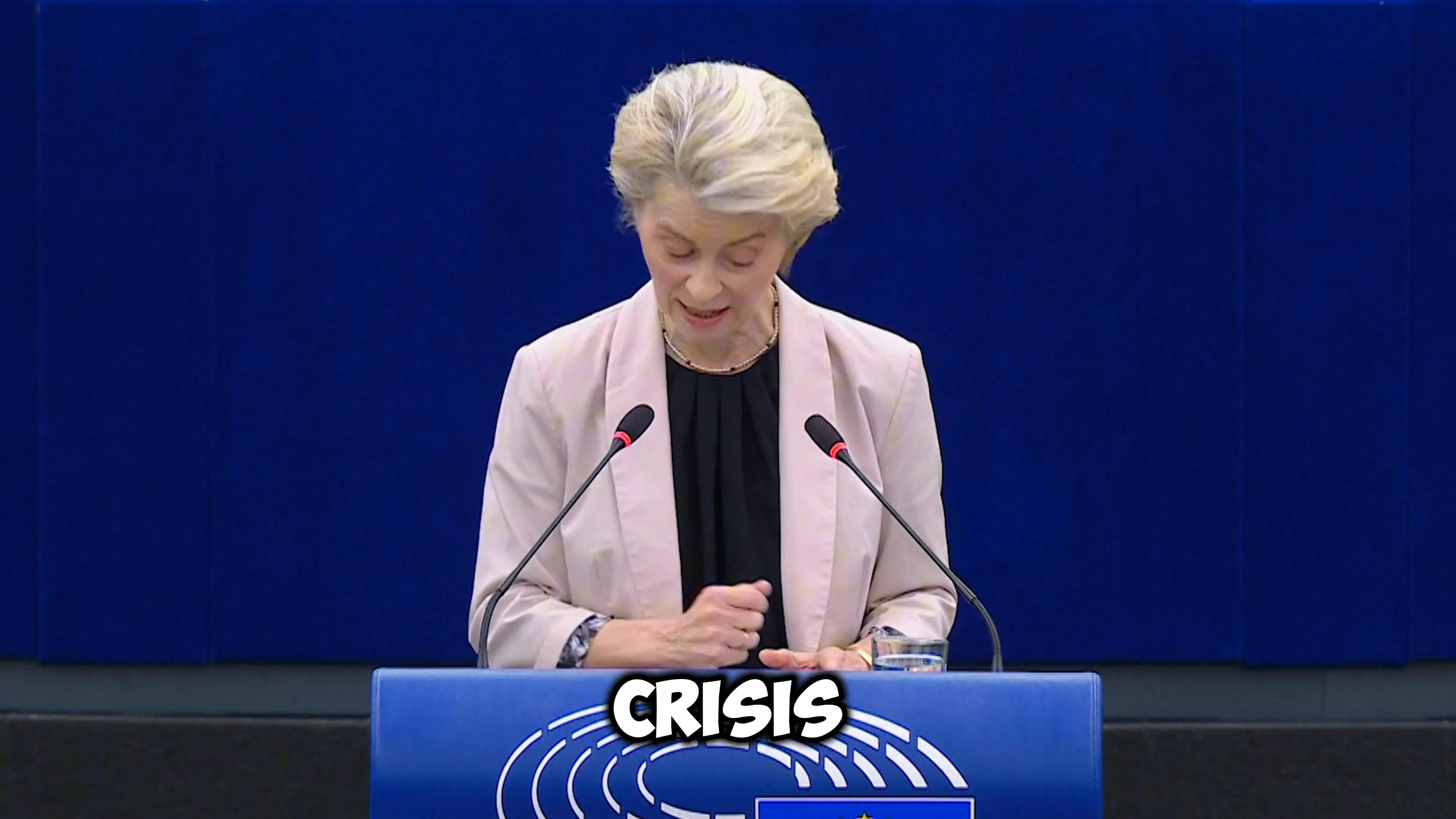
Migration Policy Overview
The topic of migration policy was met with intense scrutiny. Von der Leyen promised a balanced approach that guarantees both sovereignty and individual rights. She outlined plans for stricter rules while also emphasizing the importance of opening legal pathways for migration.
This dual approach aims to address the complex realities of migration while safeguarding the rights of individuals. The pact for migration and asylum, as articulated by von der Leyen, seeks to create a framework that is both fair and firm, resonating with the need for solidarity among member states.
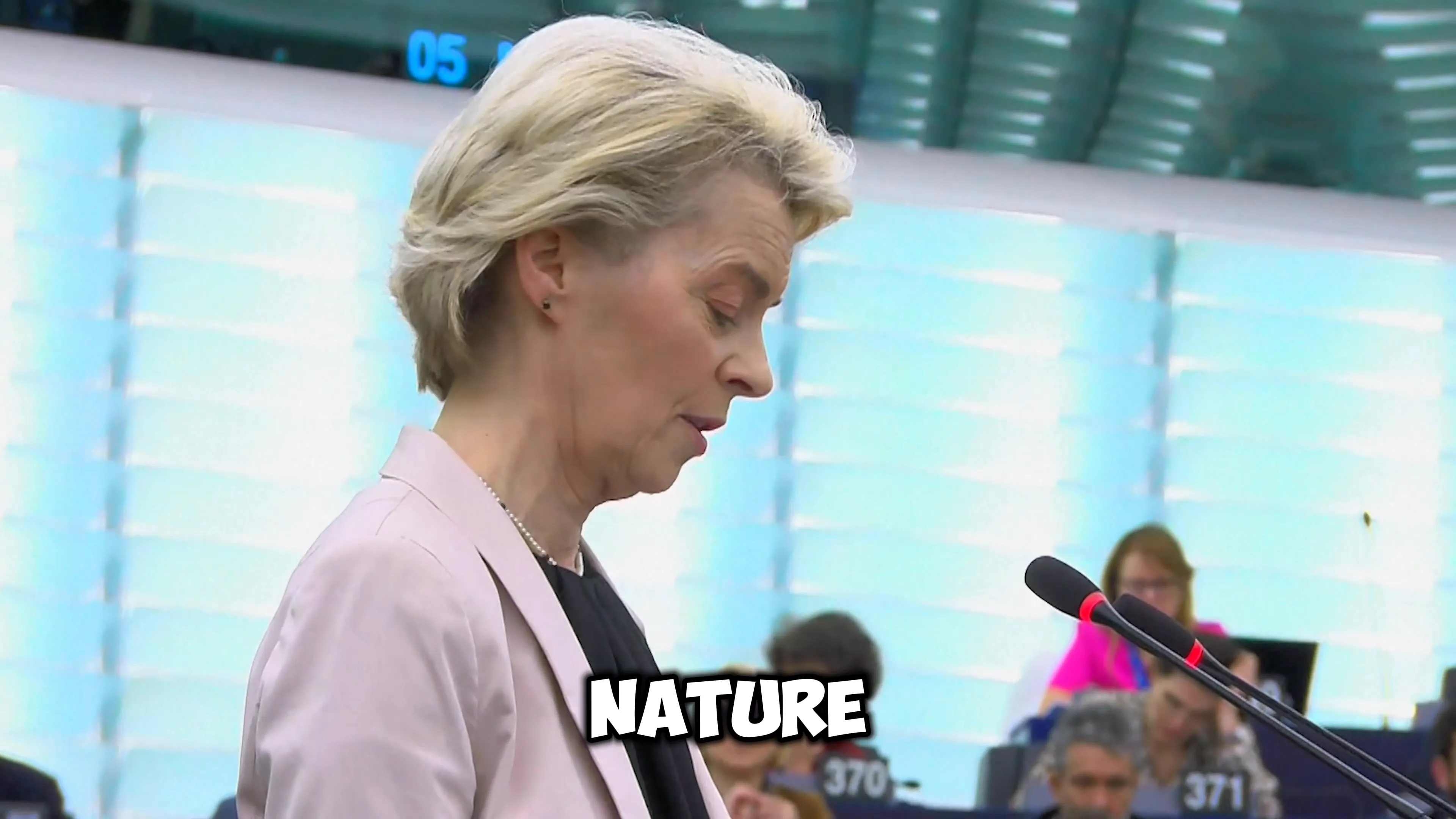
Closing Remarks
In her closing remarks, von der Leyen appealed for trust in her leadership team, urging MEPs to choose a stronger, more united Europe. She acknowledged the challenges ahead but expressed confidence that, together, the EU could navigate the complexities of modern governance.
Her call to action resonated with those who believe in the potential of the European Union to be a force for good. However, the skepticism expressed by many MEPs during the debate indicates that the path forward will require not only vision but also tangible results.
“For a deeper dive into the heated debates and critical perspectives surrounding the EU Green Deal and Ursula von der Leyen’s leadership, watch our video here: https://youtu.be/03FicqtVqRY.”
